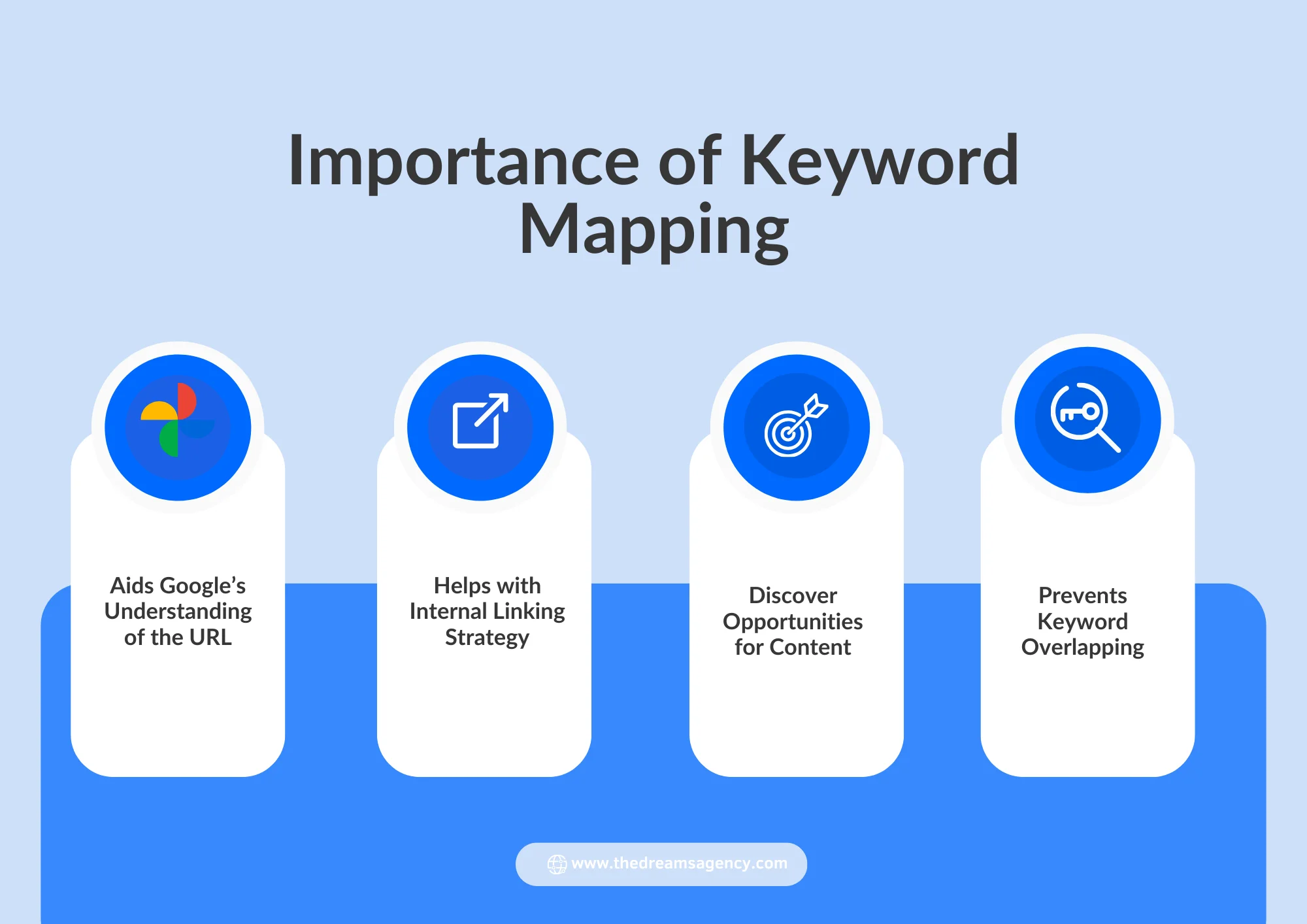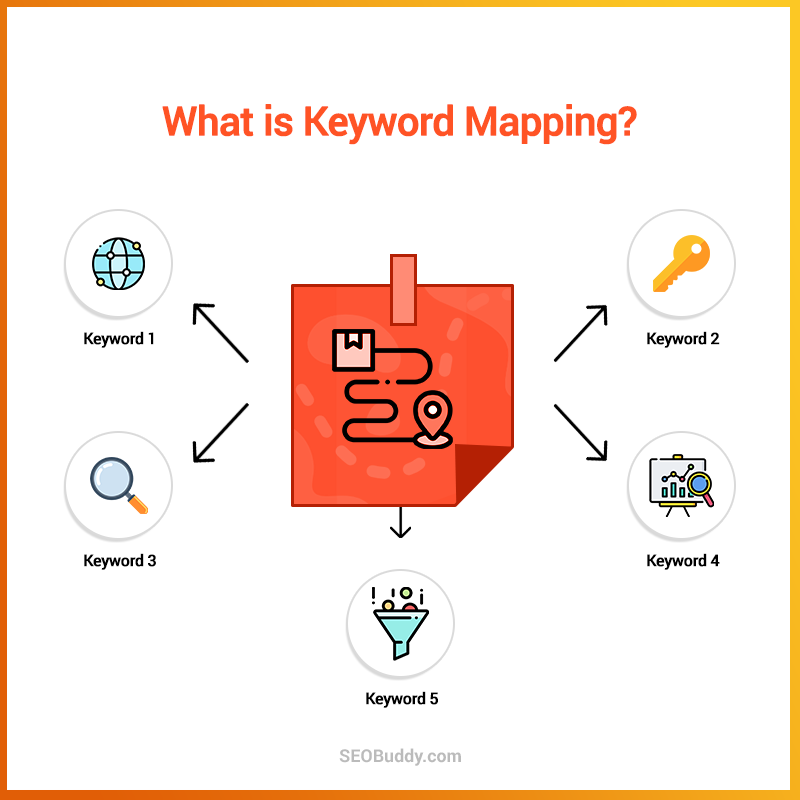Unveiling the Power of Keywords: A Comprehensive Guide to Keyword Mapping
Related Articles: Unveiling the Power of Keywords: A Comprehensive Guide to Keyword Mapping
Introduction
With enthusiasm, let’s navigate through the intriguing topic related to Unveiling the Power of Keywords: A Comprehensive Guide to Keyword Mapping. Let’s weave interesting information and offer fresh perspectives to the readers.
Table of Content
Unveiling the Power of Keywords: A Comprehensive Guide to Keyword Mapping

In the digital landscape, where information reigns supreme, understanding the language of your audience is paramount. This is where keyword mapping emerges as a powerful tool, enabling businesses and individuals to effectively communicate with their target market.
Defining Keyword Mapping: A Strategic Approach to Search Engine Optimization
Keyword mapping is a structured process that involves identifying and organizing relevant keywords for a website or content strategy. It goes beyond simply compiling a list of terms; it delves into the intricate relationships between keywords, their search volume, and user intent. The ultimate goal is to create a comprehensive roadmap that guides content creation and optimization for maximum visibility and engagement.
The Building Blocks of Keyword Mapping: A Foundation for Success
Several key elements contribute to the effectiveness of keyword mapping:
1. Keyword Research: This initial stage involves identifying relevant keywords that potential customers use to search for information related to your products or services. This process relies on various tools and techniques, including:
* **Keyword Research Tools:** Platforms like Google Keyword Planner, Ahrefs, and SEMrush provide valuable insights into search volume, competition, and related keywords.
* **Competitor Analysis:** Understanding the keywords your competitors are using can reveal valuable insights into industry trends and search intent.
* **Search Engine Results Pages (SERPs):** Analyzing the top-ranking websites for your target keywords provides valuable information about the content structure and optimization strategies employed by successful competitors.
* **User-Generated Content:** Examining online forums, social media platforms, and review websites can reveal the language and terminology used by your target audience.2. Keyword Grouping: Once you have a list of relevant keywords, the next step is to organize them into logical groups based on their relevance to specific topics, products, or services. This grouping process facilitates the creation of targeted content that addresses specific user needs and search queries.
3. Keyword Intent: Understanding the intent behind a search query is crucial for creating effective content. Different keywords reflect different user intentions, such as:
* **Informational:** Users seeking general information or educational content.
* **Navigational:** Users looking for a specific website or page.
* **Transactional:** Users intending to purchase a product or service.
* **Local:** Users searching for businesses or services in their geographic area.4. Keyword Mapping Chart: This visual representation summarizes the keyword research and grouping process, providing a clear overview of the target keywords, their relevance to specific pages, and their corresponding search intent.
The Benefits of Keyword Mapping: Unleashing the Power of Visibility
Implementing a well-structured keyword mapping strategy offers numerous benefits:
1. Enhanced Search Engine Visibility: By targeting relevant keywords, your website and content become more visible to users searching for information related to your offerings. This increased visibility translates to higher organic traffic and potential conversions.
2. Improved User Experience: Keyword mapping helps create content that resonates with your target audience, addressing their specific needs and interests. This results in a more engaging and relevant experience, leading to increased user satisfaction and loyalty.
3. Targeted Content Creation: By understanding the search intent behind keywords, you can develop content that directly addresses the needs of your target audience. This focused approach ensures that your content is valuable and relevant, leading to higher engagement and conversion rates.
4. Effective Content Optimization: Keyword mapping provides a framework for optimizing your website and content for search engines. By strategically incorporating relevant keywords into page titles, meta descriptions, headings, and body text, you can improve your website’s ranking in search results.
5. Competitive Advantage: By understanding the keywords your competitors are using, you can identify opportunities to differentiate your content and stand out in the crowded digital landscape.
FAQs: Addressing Common Questions about Keyword Mapping
1. What are the best keyword research tools?
Several powerful tools are available for keyword research, each offering unique features and benefits. Some popular options include:
* **Google Keyword Planner:** A free tool provided by Google, offering insights into search volume, competition, and related keywords.
* **Ahrefs:** A comprehensive SEO toolkit that provides detailed keyword analysis, competitor research, and backlink data.
* **SEMrush:** A versatile platform that offers keyword research, competitor analysis, SEO auditing, and advertising tools.2. How often should I update my keyword map?
The frequency of updating your keyword map depends on several factors, including industry trends, changes in search algorithms, and your business goals. It is recommended to review and update your map at least quarterly or whenever significant changes occur in your industry or target audience.
3. How can I measure the success of my keyword mapping strategy?
Track key metrics like organic traffic, website ranking, conversion rate, and user engagement to gauge the effectiveness of your keyword mapping strategy. Tools like Google Analytics and Search Console provide valuable insights into website performance and user behavior.
4. Is keyword mapping only for websites?
While keyword mapping is primarily associated with website optimization, it can also be applied to various digital marketing activities, such as:
* **Social Media Marketing:** Identifying relevant hashtags and keywords to increase visibility and engagement on social media platforms.
* **Content Marketing:** Creating blog posts, articles, and other content that targets relevant keywords and addresses user search intent.
* **Email Marketing:** Optimizing email subject lines and content with relevant keywords to improve open rates and engagement.5. What are some common mistakes to avoid when using keyword mapping?
a. Keyword Stuffing: Overusing keywords in your content can negatively impact your website’s ranking and user experience. Focus on natural language and provide valuable content that addresses user needs.
b. Ignoring Long-Tail Keywords: Long-tail keywords are more specific and have lower search volume but can generate highly targeted traffic. Don’t overlook these valuable keywords in your mapping strategy.
c. Neglecting User Intent: Don’t solely focus on keyword volume; understand the intent behind search queries and create content that fulfills users’ expectations.
Tips for Effective Keyword Mapping:
1. Focus on User Intent: Prioritize keywords that reflect the specific needs and interests of your target audience.
2. Use a Variety of Keywords: Include a mix of broad, mid-tail, and long-tail keywords to capture a wider range of search queries.
3. Keep Your Map Updated: Regularly review and update your keyword map to reflect industry trends, algorithm changes, and changes in user behavior.
4. Track Your Results: Monitor key metrics to gauge the effectiveness of your keyword mapping strategy and make adjustments as needed.
Conclusion: Embracing the Power of Keyword Mapping for Success
Keyword mapping is an essential tool for any business or individual seeking to thrive in the digital landscape. By understanding the language of your target audience and strategically optimizing your content for relevant keywords, you can enhance search engine visibility, improve user experience, and ultimately achieve your digital marketing goals. As search algorithms evolve and user behavior shifts, embracing a dynamic and data-driven approach to keyword mapping will be crucial for staying ahead of the competition and maximizing your online success.








Closure
Thus, we hope this article has provided valuable insights into Unveiling the Power of Keywords: A Comprehensive Guide to Keyword Mapping. We appreciate your attention to our article. See you in our next article!